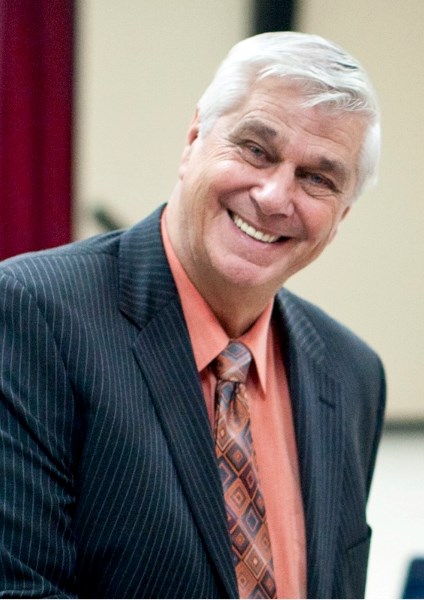Olds-Didsbury-Three Hills MLA Richard Marz stepped out of the party line last week, announcing to the legislature that he would not support the province's controversial impaired driving legislation, Bill 26.ìThere are just too many questions and there has been too little time to study all of this,î Marz told the legislature on Dec. 5. ìI don't think this bill is near close enough.ìIt's very divisive and that creates concerns right there for me.îThe count was recorded on Dec. 6, with 30 voting in favour, and seven opposed. ìThere were 46 who didn't vote,î Marz said.Bill 26, the Alberta Traffic Safety Amendment Act 2011, was introduced in the Alberta legislature by Transportation Minister Ray Danyluk, who said it balances prevention and education with tougher sanctions. The bill was also championed by Attorney General and Minister of Justice Verlyn Olson and Minister of Solicitor General and Public Security Jonathan Denis.ìI have one goal for this legislation, and that is having more Albertans arrive home safely at the end of the day,î Danyluk told the Gazette. ìNot only does Alberta's approach target repeat offenders, it is designed to reduce the number of drivers who become repeat offenders in the first place.îIn the last five years, Danyluk said, 569 Albertans died because of impaired driving. ìThere have been 8,500 injuries, as well. In Alberta, 22 per cent of deaths are caused by impaired driving.ìThis is safety legislation, first and foremost.îEvery province in Canada, except Quebec, imposes licence consequences on drivers at .05 or above.ìSaskatchewan starts at .04,î Danyluk added. ìThirty-three other countries have .05 or lower.îAlberta's approach is based on research into actions that change behaviours. It introduces differing levels of response for differing situations, from hard sanctions for repeat offenders to consequence-based actions for first-time offenders. Education is a key component, with the addition of enhanced monitoring and mandatory education and treatment programs for repeat offences.Alberta also proposes vehicle seizures as a meaningful consequence to influence driver behaviour.ìThe three-day confiscation of your vehicle is the big part of the bill,î Marz stated. ìIn rural Alberta, not everyone has a lineup of vehicles. How will that affect your job, if the car isn't available for you to get to work? Or what if your teenager has the family vehicle taken away? How does the income earner of the family get to work?îMarz said he found a number of things confusing about Bill 26. ìOne is the speed it was felt this had to be done,î he said. ìWhen the Minister of Transportation stated in the House that three ministries had been studying it for four years, they should have considered a detailed report that I had tabled last December, titled Alcohol Crash Problem in Canada, 1995-2008.îDanyluk countered that he did advise his staff. ìWe looked at that and other reports to assess where we are and where we're going,î he said. ìThis is a safety legislation that targets repeat offenders. It's not about social drinkers.ìWe're building on .05 sanctions that have been in Alberta for several years.îAnother concern that Marz raised was that the public was not fully consulted on the bill.ìThe unsuspecting public should have had an opportunity to hear what we're doing,î Marz said. ìThis is not happening. We need to be talking to Albertans about this. Then perhaps we would have a more perfect piece of legislation.îHe also noted that the hospitality industry did not have much input.ìWhat concerns me is the fact that some restaurants in small towns have very thin margins,î Marz said. ìThat liquor licence makes a difference between being in the black or in the red.ìSome owners have told me they'll be out of business.îYet Danyluk argued that there had been public debate.ìWe've been working with hospitality groups, restaurant owners and hotel owners even before the bill was introduced. Discussion has been there. We've also heard from a lot of Albertans, including law enforcement officials. There has been an ongoing consultation for a number of years,î Danyluk said.ìRural Albertans are telling us their highways are very important to them. At the end of the day, if you're impaired, you should not be driving.î



